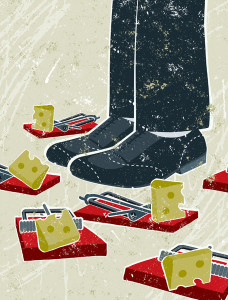 Controlling or manipulative behaviour in relationships isn’t there from the beginning, or we wouldn’t stay. It can slowly and subtly develop over time, so much so that you barely notice at first, but soon you begin to notice how isolated and manipulated your life has become. Controlling behaviour is not specific to a particular socioeconomic status, gender, age, sexual orientation etc. It happens in all walks of life around New Zealand.
Controlling or manipulative behaviour in relationships isn’t there from the beginning, or we wouldn’t stay. It can slowly and subtly develop over time, so much so that you barely notice at first, but soon you begin to notice how isolated and manipulated your life has become. Controlling behaviour is not specific to a particular socioeconomic status, gender, age, sexual orientation etc. It happens in all walks of life around New Zealand.
When we picture a controlling partner we usually think of an overly aggressive person who shouts and yells, makes demands, ultimatums and threats, who bullies, manipulates and commands another person. While this is often the case, it doesn’t have to be so overt.
Controlling behaviour in your relationships can also be quite subtle, partners who feel the need to dominate their significant other often have a number of different tools to create fear, intimidation and control. It is not uncommon for controlling partners to use emotional coercion as a way to influence your thoughts/feelings/behaviour. This may leave the controlled partner feeling like the ‘bad guy’ or the one at fault, or even, lucky to have such an understanding partner that they ‘put up’ with your behaviour/feelings.
Controlling behaviour does not have to end in Domestic Violence, where physical, emotional and sexual abuse are other tools used to coerce their partner. It does however, need to be taken seriously, toxic relationships are not healthy ones, and there are some signs to be aware of. If you notice more than a couple of the below signs within your relationship, please seek help and support. If at any point in your relationship you feel concerned for your safety, reach out immediately. You can contact the local Woman’s Refuge on 0800 REFUGE or DIAL 111.
Controlling Behaviour Checklist:
- Social Isolation: if you notice you are no longer able to hang out with friends or family for fear of what your partner with think/feel/say/do.
- Chronic Criticism: when you feel everything you do, even when done well is attacked or criticised. Even the small insignificant things are berated.
- Love and Affection is Conditional: an example of this would be “I love you so much more when you are thinner” or “If you can’t even make dinner right, I don’t know what the point of this relationship is”.
- Threatening Behaviour Against You or Your Behaviour: this can be both overt and veiled. It doesn’t have to be physical in nature either, comments about cutting you off from their love, sex or finances can also be threatening behaviour.
- Spying/Snooping: when you partner constantly needs to check your phone, emails and internet history, or constant calls to find out where you are or who you are with. These behaviours are often followed with justification statements like “If you have nothing to hide, you shouldn’t mind me looking”.
- Overly Jealous/Paranoid or Accusatory: when your partner becomes possessive and deems every interaction with another as flirtatious or teasing, even when completely innocent.
- Lack of Alone Time: any attempts at alone time are combatted against with guilt ridden remarks or denied completely.
- Guilt as a Manipulation Tool: even everyday things are laden with guilt. You find you are doing absolutely anything to not feel guilty, even relenting and giving up your power, opinions and behaviours.
- Creating an Unpayable Debt: If you feel beholden to your partner for the extravagant gifts, outings, holidays, or even emotional support – particularly if they have created a sense of expectation that this needs repaying in some way.
- Guilty until Proven Innocent: if you feel like you have done something wrong without knowing what it is you did, evidence is provided for the ‘wrong doing’ you committed and is used as a justification for punishment.
(Psychology Today)
There are many more signs for a toxic and controlling relationship. If you feel that you need someone to talk to or more information regarding controlling behaviour please reach out to a professional.